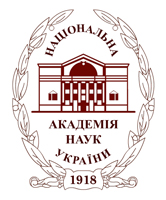 bv.nbuv.gov.ua
bv.nbuv.gov.ua
ISSN 1029-7200 (print)
ISSN 2948-0183 (online)
Bibliotechnyi visnyk
The editorial board of “Bibliotechnyi visnyk” takes measures for providing high ethical and professional standards in accordance with “Principles of transparency and Best Practice in Scholarly Publishing”, as well as “Publishing Ethics Resource Kit (PERK) for editors”, Directory of Open Access Journal (DOAJ).
The publication ethics of the journal supports the principles of ethics of the editor and the publisher, the reviewer, author of the scientific publication, which were developed by the Committee on Publishing Ethics (COPE) and can be found in “Codes of Conduct and Best Practice Guidelines for Journal Editors”:
Principles of Editor and Publisher Ethics
When deciding on publication, the editorial board is guided by the reliability of the data submitted and the scientific significance of the work under consideration.
The intellectual content of manuscripts is evaluated regardless of race, gender, sexual orientation, religion, origin, nationality, social status or political views of the authors.
Unpublished data obtained from submitted manuscripts are not used for personal purposes and are not communicated to third parties without the written consent of the author. Information from the submitted manuscripts remains confidential and is not used for personal gain.
The editorial does not publish a manuscript if there is reason to believe that it is a plagiarized one.
The editorial board retracts the publication if signs of plagiarism or data inaccuracy are detected. When submitting a manuscript to the editorial board, authors are informed about the possibility of rejecting the manuscript and retracting the publication at any stage if the editorial board receives information about the author’s violation of publication ethics. The editorial board recommends that all authors familiarize themselves with the COPE guidelines on post-publication reviews and the publication retraction policy [https://doi.org/10.24318/cope.2019.1.4]. Responsible editorial officials are also liable for allowing materials with signs of academic dishonesty to be published.
The editorial board receives and responds to requests and reviews after publication through the official email box. Based on the results of the official investigation, the editorial board makes in the next issue corrections, refutations, apologies with a link to the published article in which errors and inaccuracies were made.
Principles of Reviewer Ethics
A manuscript received for review is treated as a confidential document that can not be communicated to a third party who is not authorized by the editorial board for review or discussion.
The reviewer gives an objective and reasoned assessment of the results of the study. Personal criticism of the author is unacceptable.
Unpublished data obtained from submitted manuscripts is not used by a reviewer for personal purposes.
A reviewer who is not, in his opinion, qualified to assess the manuscript, or can not be objective, for example in the case of a conflict of interest with the author or organization must inform the editorial and ask it to be excluded from the review process of this manuscript.
In the case of a conflict of interest caused by competition, collaboration, or other relationships with any author or organization associated with the article, the reviewer is obliged to notify the editorial office with a request not to involve him in reviewing this manuscript.
Principles of Ethics of Scientific Publication Author
The author(s) of the article must provide reliable results of the research. Consistent submission of false or fraudulent data is unacceptable.
The author must ensure that the results of the study, set forth in the manuscript submitted, are completely original. The borrowed data must be given with the obligatory indication of the author and the original source. Excessive borrowings, as well as plagiarism in any form, including nonformalized citations, rephrasing or appropriation of rights to the results of the research of others, are unethical and unacceptable.
The contribution of all persons who have influenced the study process in one way or another should be acknowledged, in particular, reference should be made to the works that were relevant to the research.
The authors are required to provide the editorial office with information about any significant conflicts of interest that may affect the research results or their interpretation. The editorial office reserves the right to refuse publication if the conflict of interest may cast doubt on the scientific results of the authors' research. The author will be refused publication of advertising and commissioned materials.
The authors should not submit for publishing a manuscript that has previously been submitted to another edition and is currently under consideration, as well as an article already published in another edition.
The co-authors of the article should include all persons who have made a significant contribution to the research. Among co-authors it is unacceptable to indicate persons who did not participate in the study.
If the author finds significant errors or inaccuracies in the article at the stage of its consideration or after its publication, he should as soon as possible inform the editorial staff.





